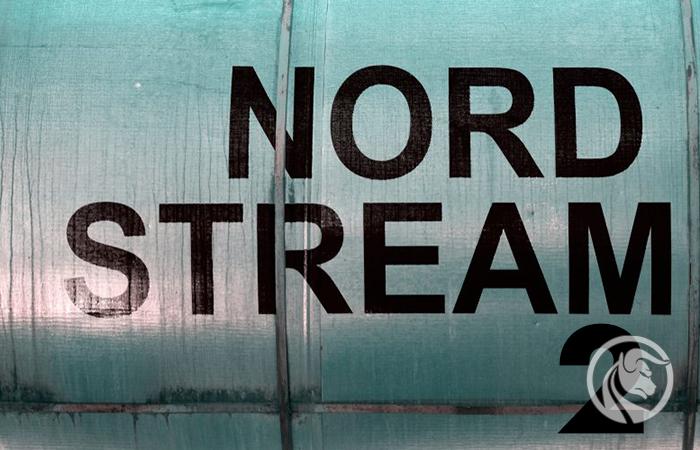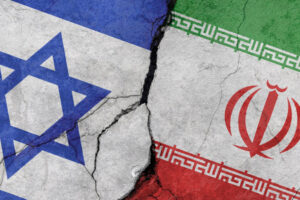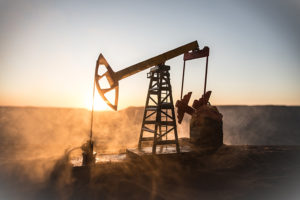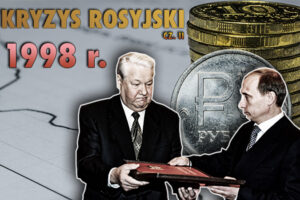Conflict in Ukraine: uncertainty is worse than war for stock exchanges
In the event of armed conflict, markets are often more responsive to the uncertainty ahead than to the conflict itself. In 2014, during the annexation of Crimea, the biggest drops in the S & P500 index were recorded two weeks before the invasion. Right now, tensions are having the greatest impact on commodity prices. It also recorded large discounts russian stock exchange.
About the author
 Pawel Majtkowski - analyst eToro on the Polish market, which shares its weekly commentary on the latest stock market information. Paweł is a recognized expert on financial markets with extensive experience as an analyst in financial institutions. He is also one of the most cited experts in the field of economy and financial markets in Poland. He graduated from law studies at the University of Warsaw. He is also the author of many publications in the field of investing, personal finance and economy.
Pawel Majtkowski - analyst eToro on the Polish market, which shares its weekly commentary on the latest stock market information. Paweł is a recognized expert on financial markets with extensive experience as an analyst in financial institutions. He is also one of the most cited experts in the field of economy and financial markets in Poland. He graduated from law studies at the University of Warsaw. He is also the author of many publications in the field of investing, personal finance and economy.
Markets fear… uncertainty?
Russia's recognition of the independence of the separatist republics in Ukraine opens a new stage of the conflict and increases uncertainty on the financial markets. This is another element, after concerns about the level of inflation and interest rate hikes in the US, that worries investors.
It is worth noting, however, that from the point of view of the global economy in the medium term, wars have limited effects on financial markets. Often, the pre-conflict tension is a greater burden than the actual clash itself. In the short term, however, the impact may be significant. For Poland and Central and Eastern Europe, this conflict is a much greater burden. Today, the Warsaw stock exchange has opened up to a large negative point, but it is slowly recovering. The stock exchange in Moscow is recording significant drops, and the ruble is also weakening.
It is worth going back to 2014, when Russia annexed Crimea. The S & P500 fell by 6 percent. in early 2014, due to concerns about a possible conflict over Crimea. The lowest ratings were recorded two weeks before the start of the Russian invasion (which began on February 20, 2014). It is worth noting, however, that there were no additional sources of uncertainty in the market during this period.
The tension has the greatest impact on the sell-off of Russian assets. Russian stocks (in the form of RSX - VanEck Vectors Russia ETF) has fallen by around 15 percent since the beginning of the year. Shares of banks such as Sberbank are most affected by declines, while commodity stocks such as Gazprom, Czy Evraz. The market believes that possible sanctions will affect the financial industry much more than the raw materials industry. And the issue of imposing sanctions on Russian raw materials, which are still lacking in Europe, is currently part of serious discussions. The ruble also weakens, the zloty has appreciated since the beginning of the year and remains resilient to the situation.
War and commodity prices
The conflict has the greatest impact on the prices of raw materials of which Russia is the main producer. The most, because by 23,6 percent. it has increased in price since the beginning of the year palladiumof which Russia remains the largest producer. 10,6 percent expensive, being a substitute for palladium, platinum. The price increases also apply oil, natural gas and wheat - Russian export goods. Potential sanctions may affect Russia's largest trading partners the most, namely China, Germany, the Netherlands and the USA. Poland is Russia's eleventh trade partner in terms of turnover.






















![Forex Club – Tax 9 – Settle tax on a foreign broker [Download the Application] Forex Club - Tax 9](https://forexclub.pl/wp-content/uploads/2024/02/Forex-Club-Podatek-9-184x120.jpg?v=1709046278)
![Trading View platform – solutions tailored to the needs of traders [Review] trading view review](https://forexclub.pl/wp-content/uploads/2024/03/trading-view-recenzja-184x120.jpg?v=1709558918)
![How to connect your FP Markets account to the Trading View platform [Guide] fp markets trading view](https://forexclub.pl/wp-content/uploads/2024/02/fp-markets-trading-view-184x120.jpg?v=1708677291)
![How to invest in ChatGPT and AI? Stocks and ETFs [Guide] how to invest in chatgpt and artificial intelligence](https://forexclub.pl/wp-content/uploads/2023/02/jak-inwestowac-w-chatgpt-i-sztuczna-inteligencje-184x120.jpg?v=1676364263)


![WeWork – the anatomy of the collapse of a company valued at $47 billion [WeWork, part II] wework bankruptcy story](https://forexclub.pl/wp-content/uploads/2024/04/wework-bankructwo-historia-184x120.jpg?v=1711729561)
![Adam Neumann – the man who screwed up Softbank [WeWork, part AND] adam neumann wework](https://forexclub.pl/wp-content/uploads/2024/04/adam-neumann-wework-184x120.jpg?v=1711728724)





![How to transfer shares to another brokerage office [Procedure description] how to transfer shares to another brokerage house](https://forexclub.pl/wp-content/uploads/2024/03/jak-przeniesc-akcje-do-innego-biura-maklerskiego-184x120.jpg?v=1709556924)

![The most common mistakes of a beginner trader - Mr Yogi [VIDEO] Scalping - The most common mistakes of a beginner trader - VIDEO](https://forexclub.pl/wp-content/uploads/2024/03/Scalping-Najczestsze-bledy-poczatkujacego-tradera-VIDEO-184x120.jpg?v=1711601376)
![Learning patience: No position is also a position - Mr Yogi [VIDEO] Scalping - Learning patience - No position is also a position - VIDEO](https://forexclub.pl/wp-content/uploads/2024/03/Scalping-Nauka-cierpliwosci-Brak-pozycji-to-tez-pozycja-VIDEO-184x120.jpg?v=1710999249)
![When to exit a position and how to minimize losses - Mr Yogi [VIDEO] Scalping - When to exit a position and how to minimize losses - VIDEO](https://forexclub.pl/wp-content/uploads/2024/03/Scalping-Kiedy-wyjsc-z-pozycji-i-jak-minimalizowac-straty-VIDEO-184x120.jpg?v=1710336731)

















